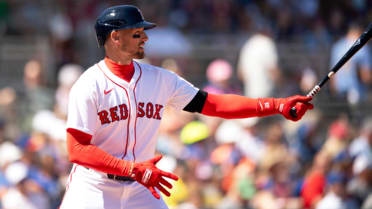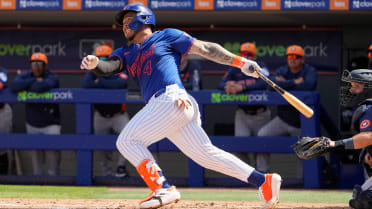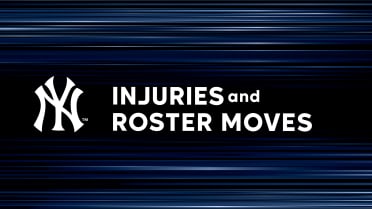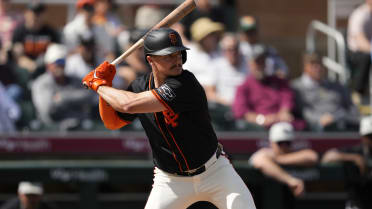Froemming always called it as he saw it
Umpire recounts being behind plate for Pappas' no-no
MILWAUKEE -- The recent passing of former Cubs pitcher Milt Pappas inevitably revived a review of what is the most memorable moment of his career -- his near-perfect game vs. the Padres on Sept. 2, 1972, at Wrigley Field.
On that night, Pappas retired 26 San Diego Padres and got ahead in the count against the 27th, pinch-hitter Larry Stahl. And then he delivered four straight balls. Pappas lost the perfect game, but he retired the next hitter and still had a no-hitter.
"I thought the umpire could have given me one of those sliders to Stahl," Pappas said after the game.
That umpire was Bruce Froemming, who called them exactly as he saw them for 37 years and 5,162 games in the big leagues. His 37 years were a record when he retired as an umpire. The 5,162 games were exceeded only by the legendary Bill Klem.
The next day at Wrigley Field, Froemming says he was "besieged" by the media.
"The word 'close' came in," Froemming recalled in an interview with MLB.com. "The pitches were 'close.' I said: 'To me, this is my perception about umpiring. It's a ball or a strike; it's not "close." I've got it a ball or a strike.' When that came up the next day -- 'You could have given it to him, it was close' -- I said, 'I'm an umpire, not a fan. I called what I saw.'"
This week, in the wake of Pappas' passing, Froemming once again has been getting some distant second-guessing in the media about a game he umpired some 44 years ago.
The funny thing about "most memorable" events is that they are rarely perfectly remembered, and this case is one of those. If you watch the video now of the 3-2 pitch, it certainly looks exactly where Froemming saw it 44 years ago: off the plate, outside.
But as often happens, with the passage of time, Pappas' recollection of the event changed. And for him, the loss of the perfect game increasingly became Froemming's fault.
"It's unfortunate that Milt passed away," Froemming said. "But over the years, the pitches got better [in his mind]. And now they were right down the middle, and I was an SOB.
"He was saying: 'The guy had it in for me.' There was none of that. I had no animosity toward Milt. If he got the perfect game, more power to him. He doctored it up. It went from 'I could have given it to him' to 'I should have given it to him.'
"Everything is on instinct in that split second [the pitch is called]. It isn't, 'Hey, Milt's got a perfect game.' I'm out there to do a job, as was he. I'm not there to help him or hurt him."
So we go through the at-bat, with Froemming, a native Milwaukeean, sitting at Miller Park.
"I remember this like it was yesterday," Froemming said.
"It was a simple deal. I knew he had a no-hitter going from the top of the seventh inning, because the fans were into it. They said there were 11,000 people there. There were about 7,000. It's a September game, San Diego was there. Neither team is going anywhere.
"In the ninth inning, Milt got two outs, and they announced the pinch-hitter, Larry Stahl. Stahl comes up and immediately gets two strikes on him. One was a foul ball, one was a called strike. And then he works the count to 3-2.
"The pitches were just off the plate, all balls. That's how I saw it. Nobody has ever questioned me on the pitches. They said the pitches were close. 'You could have given it to him' -- that's what [Cubs broadcasters] Vince Lloyd and Lou Boudreau said.
"Pappas, the next day in the Chicago Sun-Times, he said: 'I know the pitches were balls, but he could have given it to me.' So the next day I go to the ballpark, I'm besieged by the press. Boudreau asked if he could interview me. I said: 'Sure.' In the interview, he said: 'You could have become famous. You could have become the 12th umpire in the history of the game to have a perfect game.' I said to Boudreau: 'Who was the 11th umpire?' He said he didn't know. I said: 'That's how famous I'd be.'
"Randy Hundley was the catcher. Never once did he say a word about any of the four pitches. On the second ball, Pappas came off the mound. I said: 'Randy, if he gets here, he's gone.' This was my second year in the big leagues. Randy said: 'Let me take care of it,' so he ran out to the mound. He got Pappas back on the mound, and Whitey Lockman, the manager, came out and got Pappas back on the mound.
"On ball four, again he came off the mound. They got him under control again, and he got the next guy out and he got his no-hitter.
"The last three pitches were in the same place -- they were outside, off the plate. They were all outside pitches.
"I never thought of 'close' in my life. Here's the pitch. Ball two. 'Yeah, but it was close.' They're all close."
Initially, Pappas and Froemming were public pals on the near-perfect game issue.
"I did a couple of banquets where Pappas and I were on the same dais," Froemming said. "I always asked who else was on the program. When they said Pappas, I said: 'You got me, but I go last.' They both agreed. We had a lot of fun with it.
"But what he leaned on was the pitch was close, I should have given it to him. You know what? Umpires miss pitches. We're not perfect. But to think that you'd miss one on purpose to give a guy something like that? It never entered my mind."
The fact that Pappas didn't pitch a perfect game on Sept. 2, 1972, should not diminish in the least what was an outstanding career. He won 209 games. Pappas had a lifetime ERA of 3.40.
Earlier in his career, Pappas was an All-Star in two seasons with the Baltimore Orioles. He pitched for the Reds and the Braves, then won 17 games twice for the Cubs. The 1972 season, even without the perfect game, was one of Pappas' best. He went 17-7 with a 2.77 ERA.
For Froemming's part, he has lived and breathed the umpires' craft. At age 76, he is still working with the umpires for Major League Baseball, and he particularly enjoys helping young umpires in Spring Training. Froemming's conversation is sprinkled with words of praise for those who have aided the umpires' cause.
Like Joe Torre, MLB's chief baseball officer: "A godsend to umpires, he wore the uniform, he understands."
Or Frank Robinson, for many years a primary MLB executive: "A tremendous help to umpires over the years."
For all those years, Froemming was, as he said, an umpire, not a fan. There was no room for close. There was either a ball or a strike. And on that day in September 1972, he saw four balls to Stahl. And that is the way it was.
Mike Bauman is a national columnist for MLB.com.



